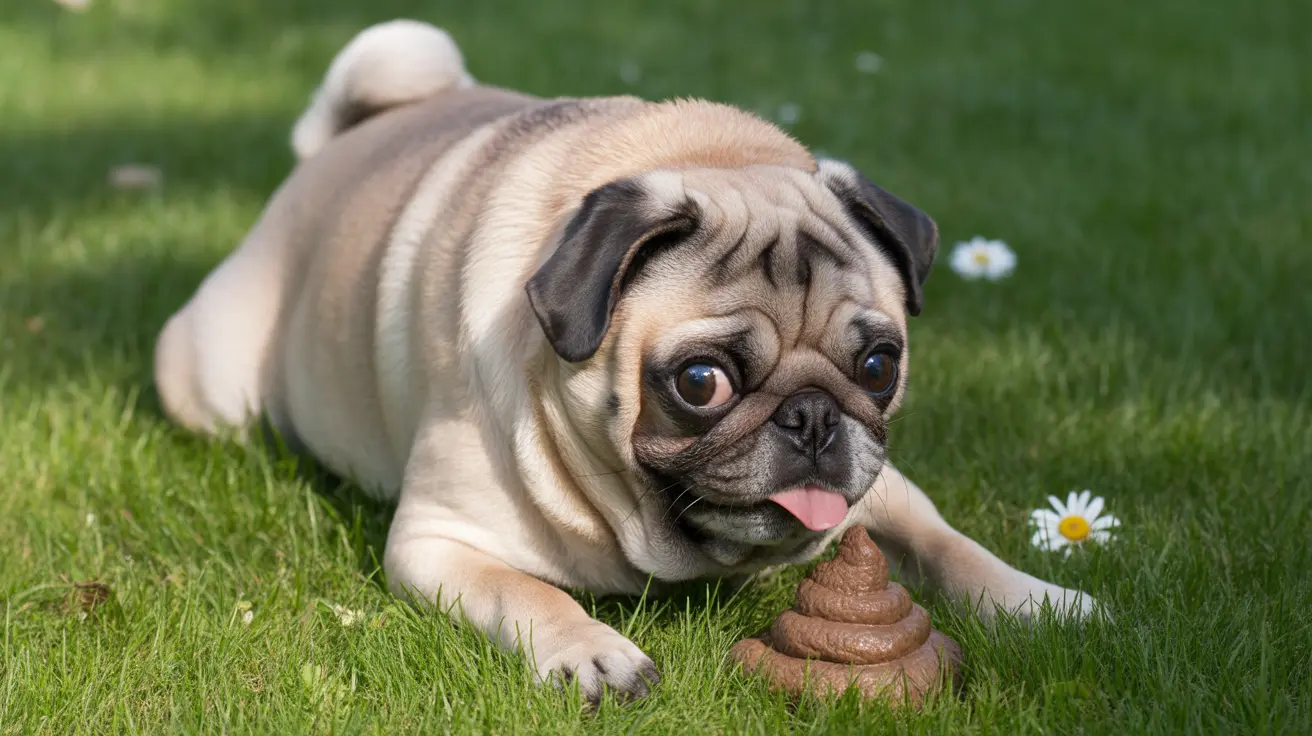If you've noticed your dog's poop smelling particularly foul lately, you're not alone. While dog waste naturally has an unpleasant odor, unusually strong or offensive smells often indicate underlying issues that deserve attention. Understanding why your dog's poop smells so bad can help you identify potential health problems and take appropriate action.
In this comprehensive guide, we'll explore the various causes of extremely smelly dog poop, from dietary issues to serious health conditions, and provide practical solutions to address this common concern.
Common Dietary Causes of Smelly Dog Poop
Poor Quality Dog Food
Low-quality dog food often contains indigestible fillers like corn, wheat, and soy, which can lead to excessive fermentation in your dog's gut. This process produces strong-smelling gases and results in particularly pungent waste. Additionally, artificial preservatives and low-grade proteins can contribute to digestive issues and foul-smelling stools.
Sudden Diet Changes
Abruptly switching your dog's food can disrupt their digestive system and gut microbiome. This disruption often leads to temporary increases in stool odor as their system adjusts to the new food. Always transition to new foods gradually over 7-10 days to minimize digestive upset.
Health-Related Causes of Foul-Smelling Stool
Digestive System Issues
Various digestive disorders can cause extremely smelly poop. Conditions like exocrine pancreatic insufficiency (EPI), inflammatory bowel disease (IBD), and small intestinal bacterial overgrowth (SIBO) can all result in malodorous waste. These conditions often require veterinary diagnosis and treatment.
Infections and Parasites
Bacterial infections, viral diseases, and parasitic infestations can cause particularly foul-smelling stools. Common culprits include:
- Giardia
- Coccidia
- Intestinal worms
- Bacterial infections
Signs That Warrant Veterinary Attention
While some degree of odor is normal, certain signs indicate a need for professional medical evaluation:
- Extremely foul or unusual smells (particularly if sudden)
- Changes in stool consistency or color
- Blood or mucus in the stool
- Persistent diarrhea
- Accompanying symptoms like vomiting or lethargy
Solutions for Better Smelling Dog Poop
Dietary Improvements
Upgrading your dog's diet can significantly impact stool odor. Consider:
- Switching to high-quality, easily digestible dog food
- Adding probiotics to support gut health
- Including fiber-rich supplements like pumpkin
- Ensuring proper hydration
Lifestyle Changes
Several lifestyle adjustments can help maintain healthy digestion:
- Regular feeding schedule
- Preventing access to garbage or spoiled food
- Consistent exercise routine
- Regular veterinary check-ups
Frequently Asked Questions
Why does my dog's poop smell so bad after switching their food?
When you change your dog's food suddenly, it can disrupt their gut bacteria balance, leading to incomplete digestion and stronger-smelling stools. Always transition to new food gradually over 7-10 days to minimize digestive upset.
Can food allergies cause my dog's poop to have a strong, unpleasant odor?
Yes, food allergies or intolerances can cause inflammation in the digestive tract, leading to poor nutrient absorption and foul-smelling stools. Common allergens include beef, chicken, dairy, and certain grains.
What health problems can make my dog's poop smell worse than usual?
Several health issues can cause extremely smelly stools, including parasitic infections, bacterial overgrowth, pancreatic insufficiency, inflammatory bowel disease, and certain infections. Any sudden or persistent change in stool odor should be evaluated by a veterinarian.
How can I improve my dog's diet to reduce foul-smelling stool?
Choose high-quality dog food with easily digestible proteins, add probiotics to support gut health, ensure adequate fiber intake, and maintain proper hydration. Avoid table scraps and low-quality treats that can disrupt digestion.
When should I take my dog to the vet because of smelly or abnormal poop?
Contact your veterinarian if you notice extremely foul odors accompanied by changes in stool consistency or color, blood or mucus in the stool, persistent diarrhea, or if your dog shows other symptoms like vomiting, decreased appetite, or lethargy.






